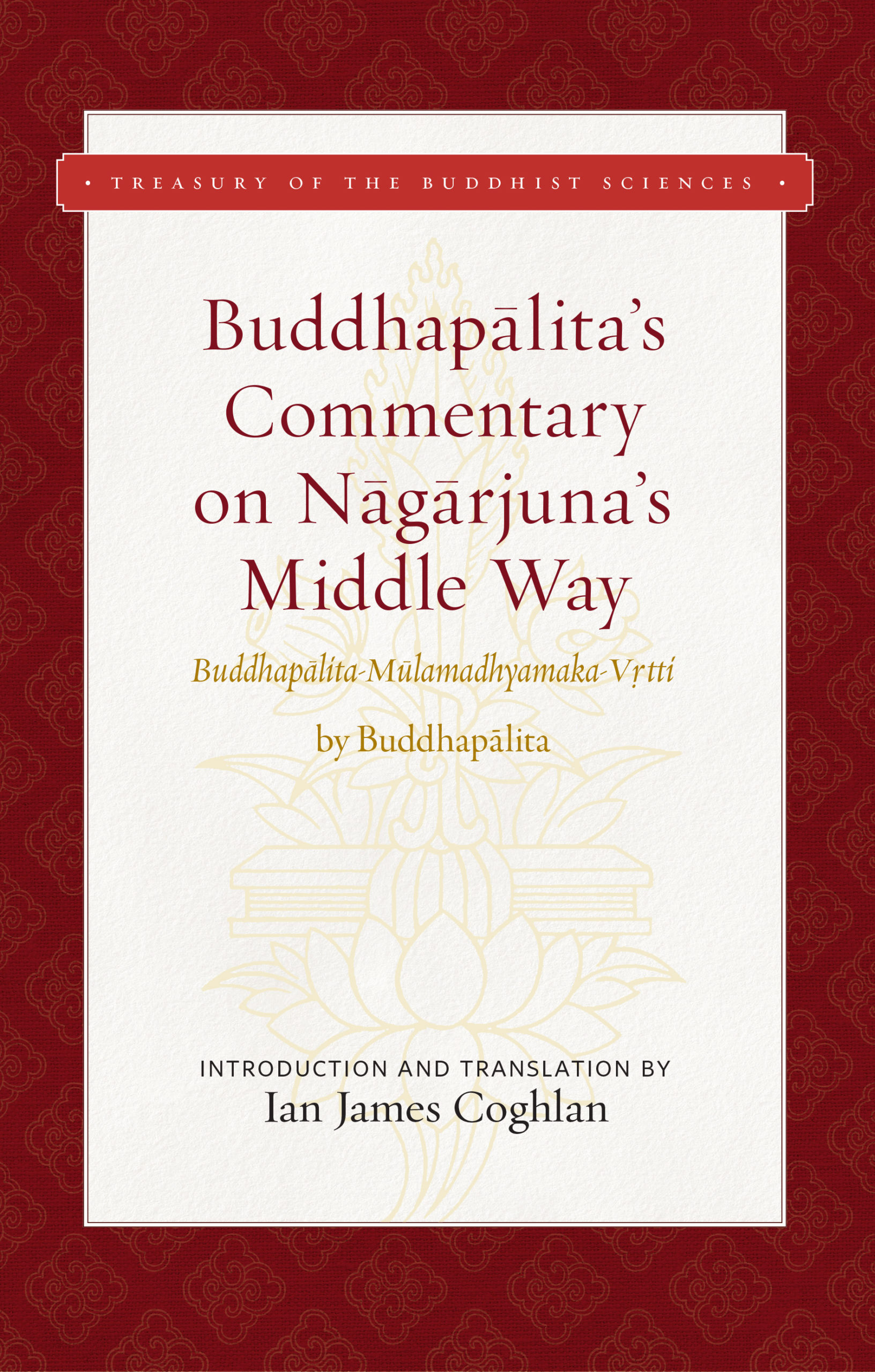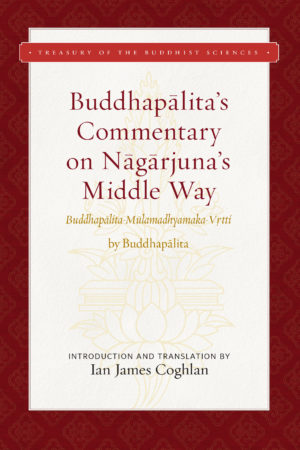
BUDDHAPāLITA’S COMMENTARY ON NāGāRJUNA’S MIDDLE WAY
This “Buddhapālita” commentary on Nāgārjuna’s famous first-century text Wisdom: Fundamental Middle Way Verses has been considered for over a thousand years by Indian and Tibetan philosophers to be the special key that best unlocks the deep philosophical freedom from confusion and perplexity that the Middle Way (or Centrist) school seeks to provide for its students.
Chandrakīrti (seventh century) defended Buddhapālita’s elegant approach as most effective in opening the Middle Way for the inquiring mind to find the liberating experience of reality. Atisha (eleventh century) brought Buddhapālita’s and Chandrakīrti’s transformative critical method to spread widely in Tibet, and Tsongkhapa (fifteenth century) provided a clarification of this philosophical work that was so rigorous and crystal clear that it opened the minds of Tibetan philosopher scientists of all schools until today.
Ian Coghlan’s masterful translation makes Buddhapālita’s breakthrough elucidation of the Wisdom Verses clearly accessible. The translator’s unique education combines the Indo-Tibetan geshé curriculum with the modern doctoral training that adds comparative text-critical analysis and comparative language research in Sanskrit as well as Tibetan. This intellectual and experiential education enabled him to produce this reliable translation for the philosophical seeker to fully engage with Buddhapālita’s richly transformative, liberating work.
- Hardcover
- 400 pages, 6 x 9 inches
- $69.95
- ISBN 9781949163209
- eBook
- 400 pages
- $35.99
- ISBN 9781949163216


